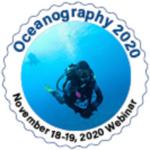
Dewi Syahidah
Institute for Marine Research Aquaculture and Fisheries Extension (IMRAFE)
Title: Status and Challenges of Vaccination for Marine Fish in Indonesia: Are we working hard?
Biography
Biography: Dewi Syahidah
Abstract
Fish and their related products are crucial not only as nutritious diets in many countries but also as the least impactful sources of food to the natural environment. Therefore, they are vital for national, regional, and global food security and nutrition strategies. According to FAO, in 2017, the global consumption of protein from fish accounted for 17 percent of total animal protein. An analysis of from WordFish indicated that the Indonesia aquaculture will surpass its’ capture fisheries as the main source of fish in Indonesia before 2030 and that investment in this sector will be an important part of increasing domestic fish supply and consumption, keeping fish prices affordable for domestic consumers and contributing fisheries for food security and nutrition in Indonesia is maintained. Business-as usual projections indicate that aquaculture will grow to over 10.1 tonnes per year, creating 8.9 million jobs equivalent to full-time jobs in production and will be a sector with a production value of USD 39.5 billion in 2030. Increased investment in aquaculture for both export and domestic markets will generate greater social and economic benefits, increase the volume and value of production, expand employment, and increase domestic fish consumption.

